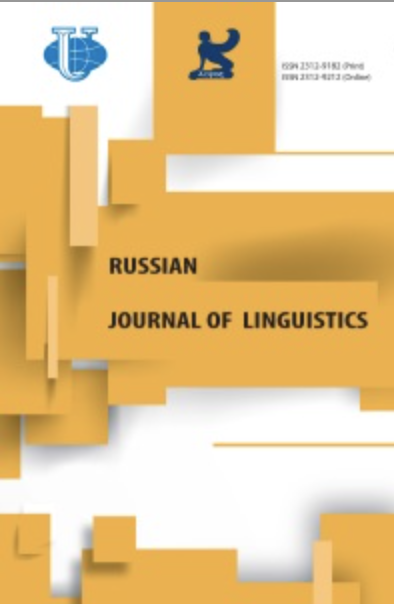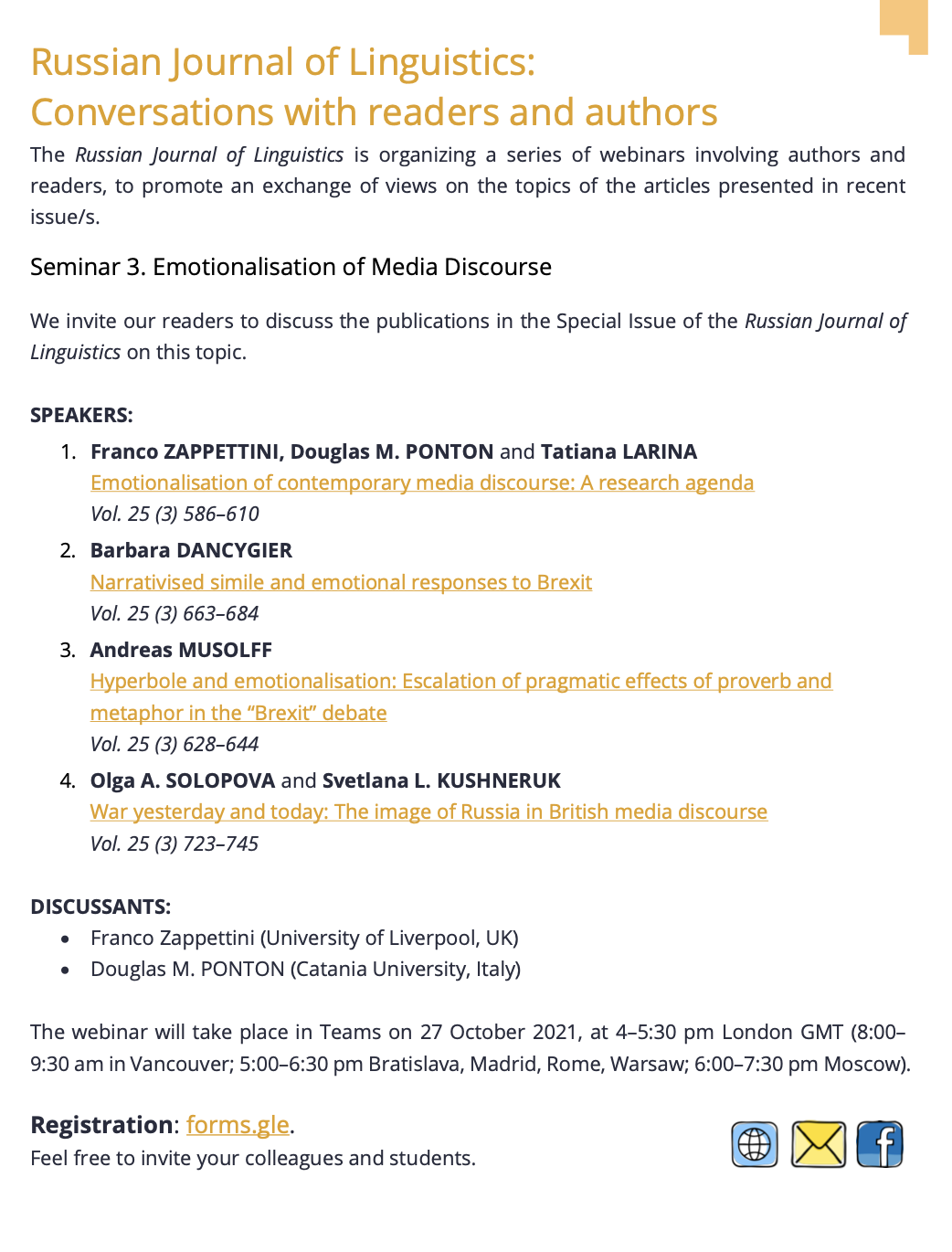Solopova O., Kushneruk S. (2021). War yesterday and today: the image of Russia in British media discourse

Solopova, Olga A.,
Kushneruk, Svetlana L.
Chelyabinsk, Russia
For citation: Solopova, Olga A. & Kushneruk, Svetlana L. 2021. War yesterday and today: The image of Russia in British media discourse. Russian Journal of Linguistics 25 (3). 723–745. https://doi.org/10.22363/2687-0088-2021-25-3-723-745
http://journals.rudn.ru/linguistics/index
Abstract. The paper focuses on diachronic framing analysis of Russia’s images in British media discourse. The importance of the research is determined by a need to work out adequate linguistic foundations to counteract information war, generated by some foreign media and aimed at distorting Russia’s history and eroding its spiritual values. Few scholars have drawn on any systematic research into analysis of Russia’s images in foreign media discourses of different historical spans. The major objective is to compare Russia’s images and their emotional charge in the British media in chronologically divided periods of war and peace under the influence of changing historical and ideological factors. The authors account for the mechanisms by which Russia’s images are framed and transformed in the contexts of the largest war of the XX century and the information war of the XXI century. The material comprises 500 samples per period. The data covering two historical spans are investigated through a framing approach. The criteria for diachronic analysis are dominant diagnostic and prognostic frames, constituting the macroframe WAR. The significant difference in Russia’s images in war- and peacetime consists in their emotive load: Russia’s contemporary negative images are contrasted to positive images activated in the retrospective period. The findings support the idea that British media discourse focusing on Russia is subject-centered: Russia’s image is determined by the geopolitical situation, Great Britain’s political priorities and objectives, and the bilateral relationship between the countries. The results can be used to further develop the linguistic basics of war theory.
Keywords: British media discourse, information war, framing theory, diagnostic frame, prognostic frame, diachronic analysis

RJL Seminar 3: “Emotionalisation of Media Discourse”
М.Монтень

